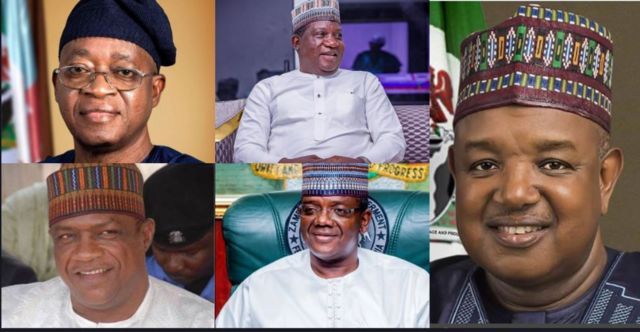The federal government, Benin and Niger Republic have agreed to set up a joint border patrol force to tackle smuggling across their common borders.
The decision is contained in a communiqué issued at the end of a meeting of foreign ministers from the three countries held in Abuja yesterday.
The meeting was held following Nigeria’s decision to shut its land borders to trade until at least January 31, 2020.
Foreign Affairs Minister Geoffrey Onyeama, who read a communique, said the team will advise on modalities for a joint border patrol.
He said there was consensus on mechanisms towards re-opening of the border.
“We have agreed to put in place certain mechanisms that would enable us to open the borders; there was consensus on that.
“We have agreed to set up a joint border patrol so the three countries would send a list of officers that would be part of the joint border patrol team.
“Security agencies, like Immigration, Customs, are going to meet on November 25 and 26.
“They would look at the modalities of implementing the whole regime of anti-smuggling regulations that have been agreed upon. After the two-day meeting, we are hoping they would be able to recommend formally for the re-opening of the borders.”
On other decisions reached at the meeting, he said they included the establishment of a monitoring and evaluation committee of the three countries, comprising ministers of Finance, trade, foreign affairs, customs, immigration and national security adviser with the mandate to ensure actions that would facilitate and enhance the suppression of smuggled goods and other related matters.
“The monitoring and evaluation committee is to ensure the full implementation of the adopted mandate of the joint anti-smuggling human trafficking g committee; establish trade facilitation committee among the three countries, comprising ministers of finance and trade in order to promote intra-regional trade among the three countries as well as put in place sanctions against smuggling of goods, and ensure persons from the three countries enter/exit each other’s states with valid ECOWAS recognised travel documents through recognised controlled posts,” the minister said.
Onyeama also said took note of the mandate of the committee which included inter alia, measures and actions that would facilitate and enhance the suppression of rice smuggling and other prohibited items along with breed of the three countries.
On anti-smuggling issues, the minister said: “The meeting deliberated on the myriad of challenges faced by the three countries, especially in the areas of smuggling of goods and services that are not approved under the protocols on ECOWAS Trade Liberalisation Scheme (ETLS), Free Movement of Persons without valid ECOWAS travel documents, as well as plethora of illegal warehouses along the border corridors.
“In this regard, the meeting acknowledged smuggling of goods as well as human trafficking as a collective violation of ECOWAS Protocols on ETLS and free movement that pose severe economic and security threats to infra-regional trade and free movement.
“In conclusion, the countries reaffirmed their commitment to enhancing economic integration.”
He expressed optimism that if all the commitments that were made at the meeting by the three countries were kept, “going forward, the problem would be minimal compared to what it is.”
On the impact of border closure, Onyeama noted: “The impact is severe; border closure always has an impact. A at the end of the day it is about the mischief we are addressing.
“The mischief in our case is in the area of food security and also security itself through smuggling of small weapons and light arms and human trafficking.
“The mischief we are addressing is much more important than the cost. The costs are high, the benefits are high.”
The minister said the Nigerian high commissioner in Ghana had engaged the Ghanaian authorities to address the threat to Nigerian traders in that country.
“Our high commissioner there is engaging with the government of Ghana, we are in touch, the ministry of foreign affairs with the leadership of the Nigerian traders in Accra, Ghana and there is no threat as we understand it, to their physical safety,” Onyeama added.

























































